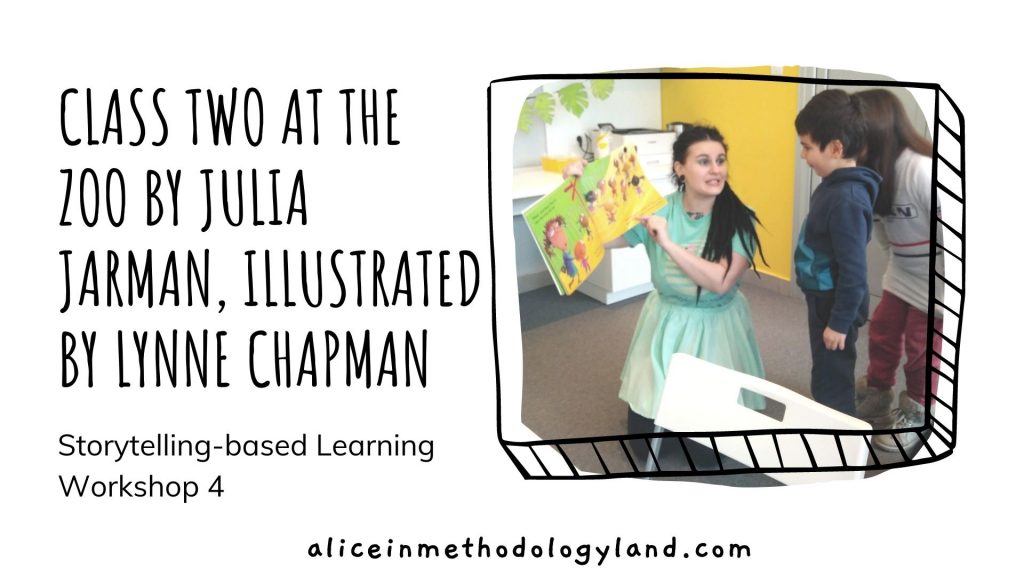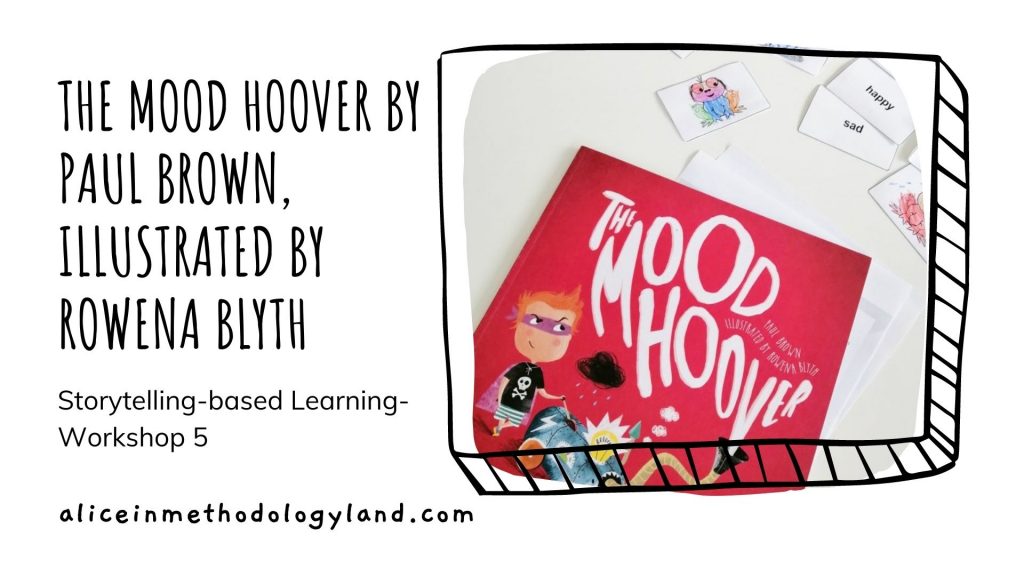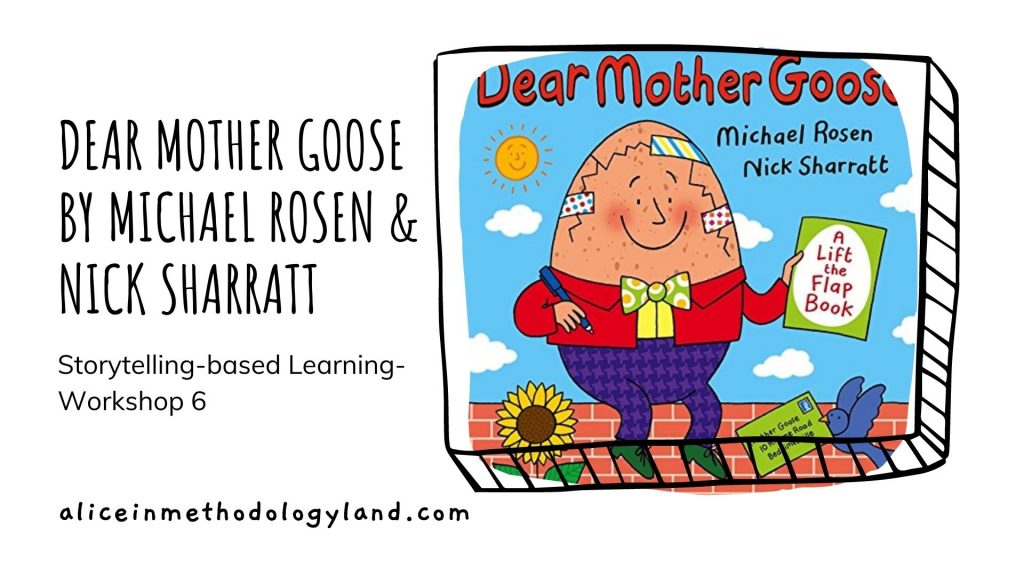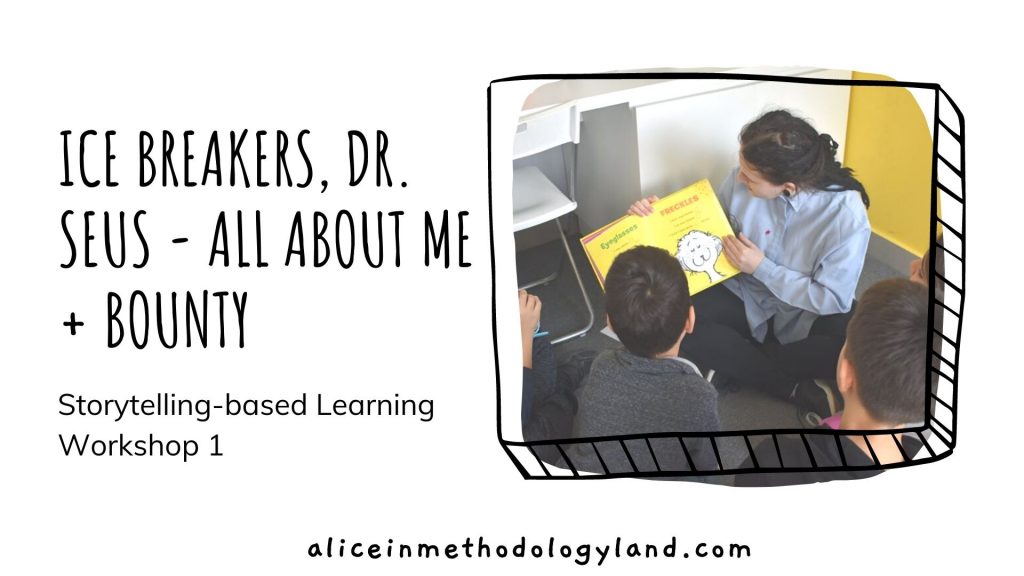
Take a stroll through our free storytelling workshop gallery
Our program with free storytelling workshops for children is conducted face-to-face in Cultural Station Barka in Novi Sad, Serbia by Milica Alice. The cultural station is located in Klisa, an economically underprivileged suburb in Novi Sad, and the goal is to include as many Roma children in the program as possible and help them, along with Serbian children, to learn English together, through storytelling, dramatization, interculturalism, and art.
How are the free workshops for children organized?
Group organization – number and age
- The group cannot have more than 15 children because of space limitations and quality work. The group we have now has only two girls which makes it hard to do classroom management in the predominately boys’ classroom.
- The children in the group will not change since they make an ‘informal’ class. Despite this being a program in an informal learning society, language learning requires structure and reusing the vocabulary in context. If the group members keep changing, we will see no progress in language acquisition. Also, the play, the communication, and collaboration in the class develop with every workshop we have.
- Language level and age – The children in the group have to possess basic literacy skills. To participate in the program, they have to had studied English in school for at least two years to achieve fluency needed to use and understand the books I currently have. We can take into consideration children from the 2nd, 3rd, and 4th grades.
Organized with the support of
Cultural Station Barka, Novi Sad, Serbia
The workshops are done in the facilities of the Cultural Station Barka, a cultural center in Novi Sad, built during the program Novi Sad – European Capital of Culture.

Examples of our interactive workshop materials
How are the workshops structured?
The general structure of the workshop
- 1st hour of the workshop – pre-teaching the vocabulary through various activities like using flashcards and TPR. We will focus on the interactive storytelling with dramatization, as well as activities to understand the story (story sequencing, inventing new end of the story, speech development through games, etc.).
- 2nd hour of the workshop – crafting workshop with recyclable materials connected with the topic of the book to review the motives through practical activities. The products of the workshop (crafts) are not only decoration but tools for dramatization as well – dolls, flashcards, posters, infographics, and so on.
- The music will be playing during crafting to promote concentration and improve the classroom atmosphere.
- At the end of every workshop, the children will select a new book from the interactive library, and we will use it next time to promote their participation in the book selection.
- After every workshop, I will write a reflection post on my website. If parents own a smartphone and internet, I will create a subscription link, and they will receive an email when a new reflection article is written.
- Finally, we will make a special video recording where I dramatize and read the story without the children. This video will be posted on YouTube, and the parents will be able to play the stories to the children at home. The recordings will also be used in my online and offline classroom.
The end of the program
The end of the storytelling-based learning program will have a theatre play we will make together, along with the costumes, the script, and the background drops. We will also write and illustrate a book for children, and that will be our last project
Peek into our program through video
What are the curriculum outcomes?
Curriculum outcomes
- Contextual vocabulary acquisition – basic vocabulary for grades 2 to 4 + vocabulary present in the books.
- Contextual grammar learning – assessed based on Cambridge (Starters, Movers, Flyers.)
- Social-emotional development and acquisition of positive behavior patterns.
- The 4C’S – communication, collaboration, creativity, and critical thinking.
- Additional 21st-century skills – digital literacy and the use of simple digital tools.
- Drama activities – gross and fine motoric development through interactive dramatization.
- Crafting – workshops with the topics of the books and development of fine motoric.
- Development of environmental awareness through sustainable workshops.
Detailed summaries with activities of example workshops
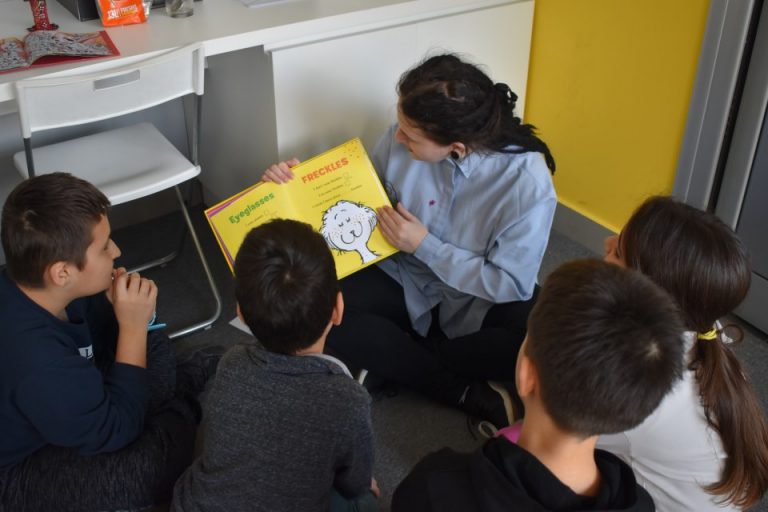

If you are a company or an organization looking to give back, consider being a donor to our face-to-face program for children and help us keep it free and running!


